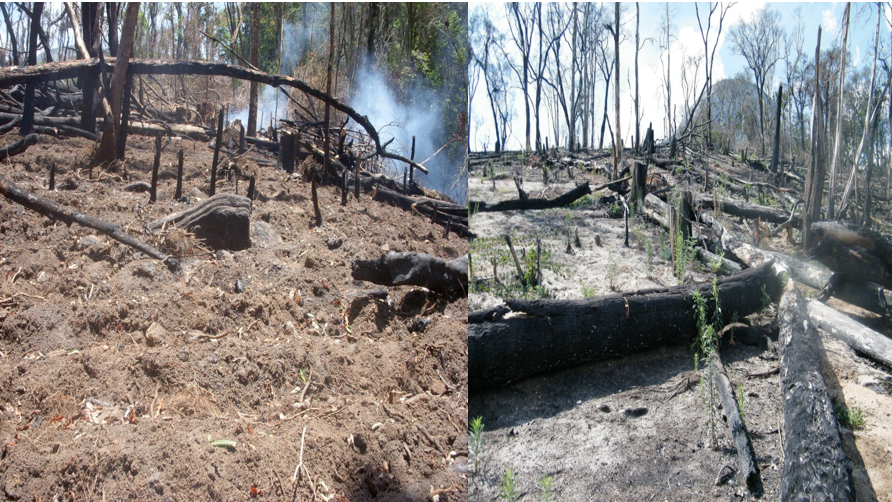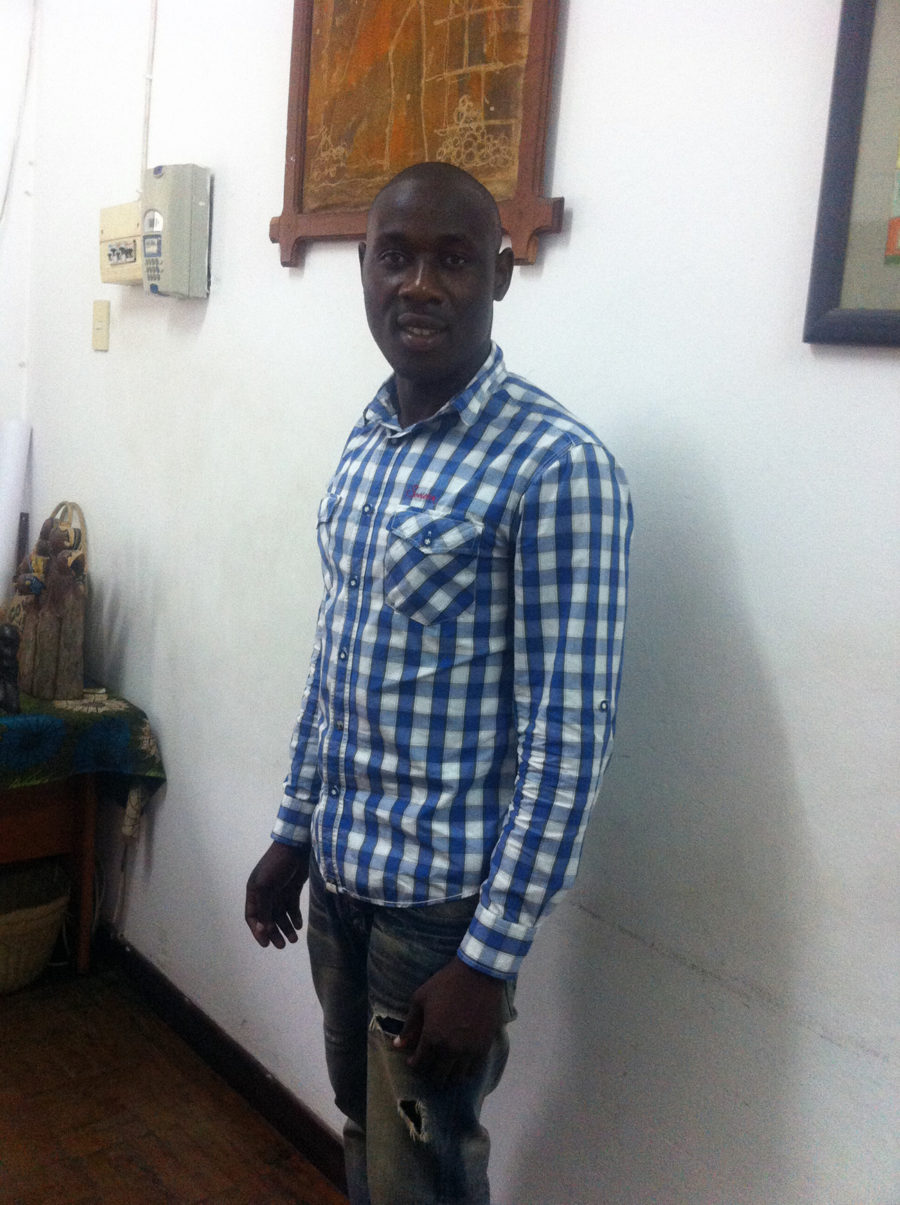Legado is pleased to welcome Sergio Cumbula as the new head of LUPA’s Community Conservation Team for Legado: Namuli. Sergio just returned from a visit to Namuli with our field team and shares the following blog about his experience.
In October 2016, I visited Namuli for the first time. I was impressed by the special aesthetic quality of the landscape resulting from the interaction of human and nature, with a predominance of traditional practices associated with agriculture, springs and rugged, mountainous terrain. I was impressed not only for the aesthetic panorama but also by its biological diversity, especially the fauna endemism (birdlife), and the prominent flora of medicinal, cultural and scientific importance.
However, during the field, work it was possible to note that this biodiversity is severely threatened due to the vicious and cyclical expansion of shifting agriculture associated with uncontrolled fires, and the unsustainable exploitation of wood that causes forest degradation. This activity promotes the dynamics of a clearing, which in turn causes the proliferation of rapidly growing invasive weed species that colonize the area and unbalance natural vegetation.
On the other hand, the Participatory Rural Appraisal, an community learning activity that LUPA completed in August of 2016, showed that ignorance of the importance of biodiversity, lack of environmental awareness, scarcity of agricultural production techniques and inputs, lack of income alternatives, and stimulation of the domestic market are indirect causes that also threaten biodiversity in Namuli.

Agricultural fields in preparation in the forest of Murretxa-Namuli.
In this context, the LUPA/Legado as Actors of Conservation and Community Development based on research, technology transfer and innovation are making efforts to find effective solutions for conservation and maintenance of biodiversity, removal of threats, indication of alternative practices compatible with the conservation and sustainable use of biological diversity (such as: conservation agriculture, agroforestry systems, restoration of degraded ecosystems, and the introduction of prescribed fires) and seek for financial resources for its execution.
Therefore, in order to materialize the proposed solutions, we aim to mitigate the indirect causes that threaten biodiversity, especially with the engagement of the local community who showed a desire to learn and commitment to biodiversity conservation. We believe that the participation of the local community is a crucial factor for the success of conservation efforts, so much that we want to base our entire conservation model around community management of the protected area.

Conservation agriculture in Field Farmer School in the Murabué community.
This approach translates into two action strategies that ultimately subdivide into actions and activities that make up the project structure:
- Conservation and maintenance of primary forests in High Conservation Value Areas (above 1200 meters) through awareness and dissemination of information on biodiversity and promotion of mechanisms for the sustainable management of natural resources and restoration;
- Adoption of new practices that incorporate biodiversity in the productive sectors in the lower area where there are human settlements through training communities in conservation agriculture matters, agroforestry systems and introduction of perennial crops.
—
 Sergio is the head of LUPA’s Community Conservation Team for Legado: Namuli. Since graduating with a B.S. in Forestry Engineering in 2015, Sergio served as an Assistant Field Researcher with the Abrupt Changes in Ecosystem Services Project. The ACES Project is a joint venture between Eduardo Mondlane University in Mozambique and the University of Edinburgh in the UK. Sergio also has extensive teaching and research experience in the area of forest protection, ecology and fire management.
Sergio is the head of LUPA’s Community Conservation Team for Legado: Namuli. Since graduating with a B.S. in Forestry Engineering in 2015, Sergio served as an Assistant Field Researcher with the Abrupt Changes in Ecosystem Services Project. The ACES Project is a joint venture between Eduardo Mondlane University in Mozambique and the University of Edinburgh in the UK. Sergio also has extensive teaching and research experience in the area of forest protection, ecology and fire management.

